November 8, 2018: Lessons from the 1960s
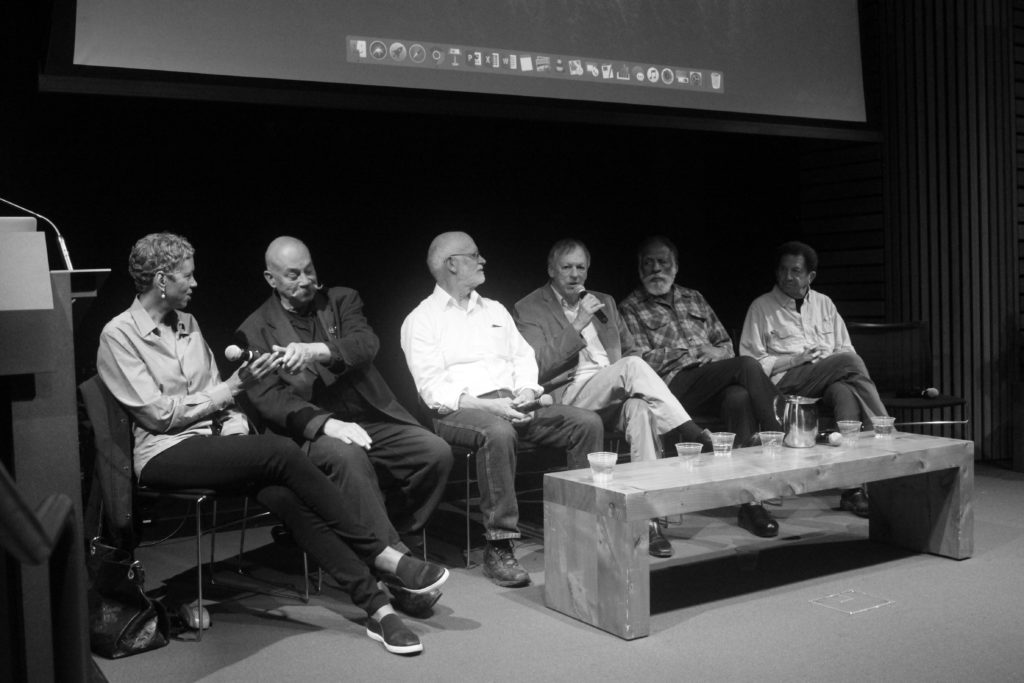
November 8th, 2018: Book Release Event and Reception for Frye Gailliard’s recent book, A Hard Rain: America in the 1960’s: Our Decade of Hope, Possibility, and Innocence Lost
On the evening of November 8th, 2018, the California Institute for Community, Art, and Nature (California I CAN) hosted southern historian and author Frye Gaillard and a stellar panel of authors, activists, poets, and artists. The questions at hand: “What should we bring with us from this tumultuous era that will be valuable in the coming decades? What should we leave behind?”
With Frye’s recently released 750-page history, A Hard Rain: America in the 1960s: Our Decade of Hope, Possibility, and Innocence Lost, as a touchstone for the evening, the program began with Berkeley Mayor Jesse Arreguin. He gave a stirring tribute to the vision, hope, idealism, and activism of the city of Berkeley in the Sixties, crediting it with having inspired his own path into political leadership and continued commitment to bettering both Berkeley and the world for all. Following the Mayor, Kenneth Brower welcomed panelists and audience alike to the David Brower Center, named in honor of his father and perpetuating many of the environmental and community goals of the Sixties.
Malcolm Margolin, founder and executive director of California I CAN, then invited Barbara Filion to the stage to introduce Frye Gaillard. Barbara, who now teaches museum studies at JFK University, had met Frye in Alabama and was helping to introduce him to the Bay Area. Then Frye spoke. A lanky, casual man, it became immediately clear that standing before this Berkeley audience was a masterful storyteller. He shared, for example, his experience of seeing Martin Luther King Jr. being arrested in Birmingham and dragged along the sidewalk by burly police officers. Frye was only a few feet away, and what he saw would change his life. Not anger or fear, which he might have expected, but “a deep well of sadness in his large, dark, expressive eyes. From that moment on, the Sixties and the movements for social change had a face, and it was the face of Martin Luther King. I couldn’t get it out of my mind.” As Frye spoke, we could feel the past bursting out of the packaging we’d previously created, and we were once again able to feel it, but in a new and powerful way. He concluded by reminding those of us who lived in Berkeley or San Francisco that it was the civil rights struggle in the South, 2,000 miles away, that set the stage for much of what we think of as the Sixties. It was a revelation and a joy to hear Frye speak, and we hope to lure him back for a longer visit.
After Frye, the panelists came to the stage. The first panel included author/publisher Adam Hochschild, poet/essayist Susan Griffin, draft resister/author David Harris, actor/activist Peter Coyote, and singer/cultural/activist Anna de Leon. The second panel included author/environmentalist Kenneth Brower, Fredrika Newton of the Huey Newton Foundation, printer/Free Speech Movement participant David Lance Goines, community leader/youth mentor Arnold Perkins, and Buddhist teacher/author/radio commentator/comic Wes “Scoop” Nisker.
It was an astonishing assemblage. Having played major roles in the Sixties, they spoke not as onlookers, but as leaders and creators. They didn’t just observe the Sixties, they were the Sixties. While they varied somewhat in their beliefs and their actions, they had helped shape a new culture. It was a complex, emotional, thought-provoking, and inspiring program. California ICAN will be drawing from it for future projects now being considered. We are grateful to all the panelists for having given this so much thought.
Since it would be impossible to sum up all that was said, we won’t even try. But it would be derelict not to at least mention the mind-blowing (to use a Sixties term that seems particularly apt) riff by Buddhist teacher and all around Sixties icon Wes “Scoop” Nisker, that concluded the program. Scoop brought back to those of us who lived in the Sixties memories of an era in which stoned seekers of instant enlightenment found themselves wrestling with concepts such as “Everything is everything.” Maybe it’s Scoop’s bigness of heart that allows him to make fun of the Sixties without trivializing it. We laughed with him at the pretenses, delusions, follies, and excesses of the era, but it wasn’t a laughter of mockery or superiority. He never let us lose sight of the sincerity and the poignancy of the spiritual journey. “Everything is perfect in its imperfection,” he concluded. Set that thought to music, and it may be as close as we can come to summing up this amazing, tumultuous time.
Grant Thompson, a local filmmaker, came to film the event. We are grateful to Grant and pleased to share the following video:
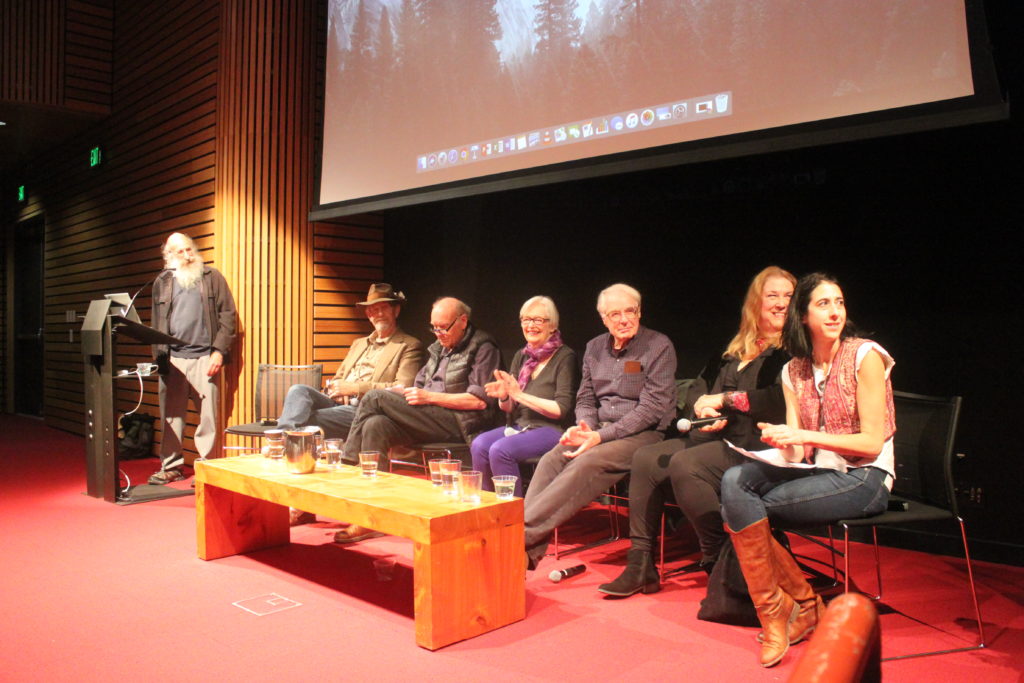
First Panel 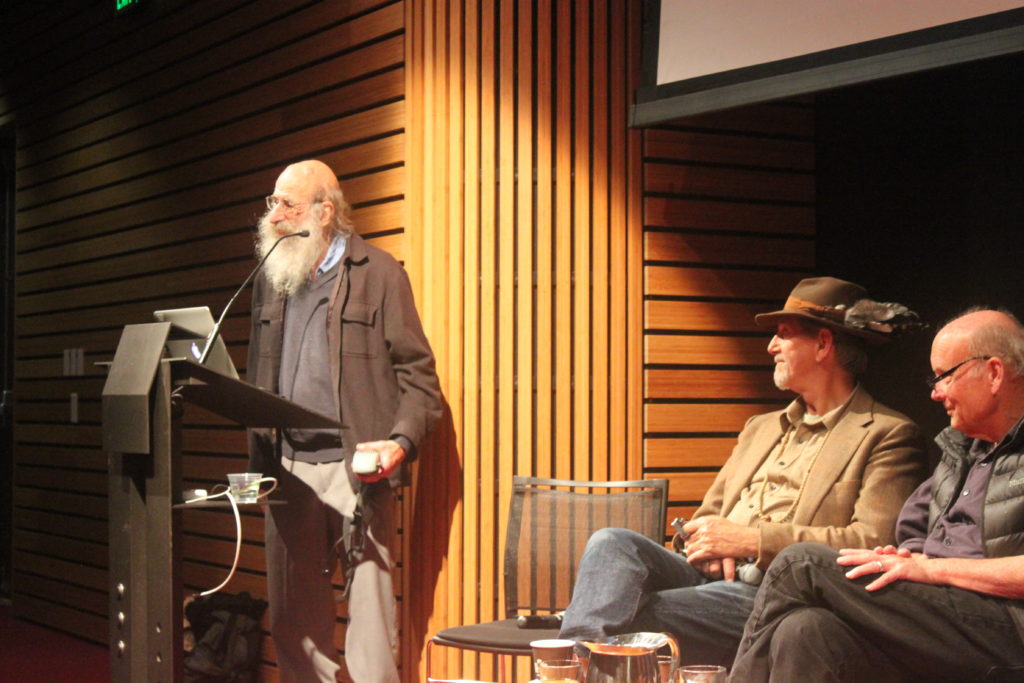
Malcolm Margolin, Peter Coyote, David Harris 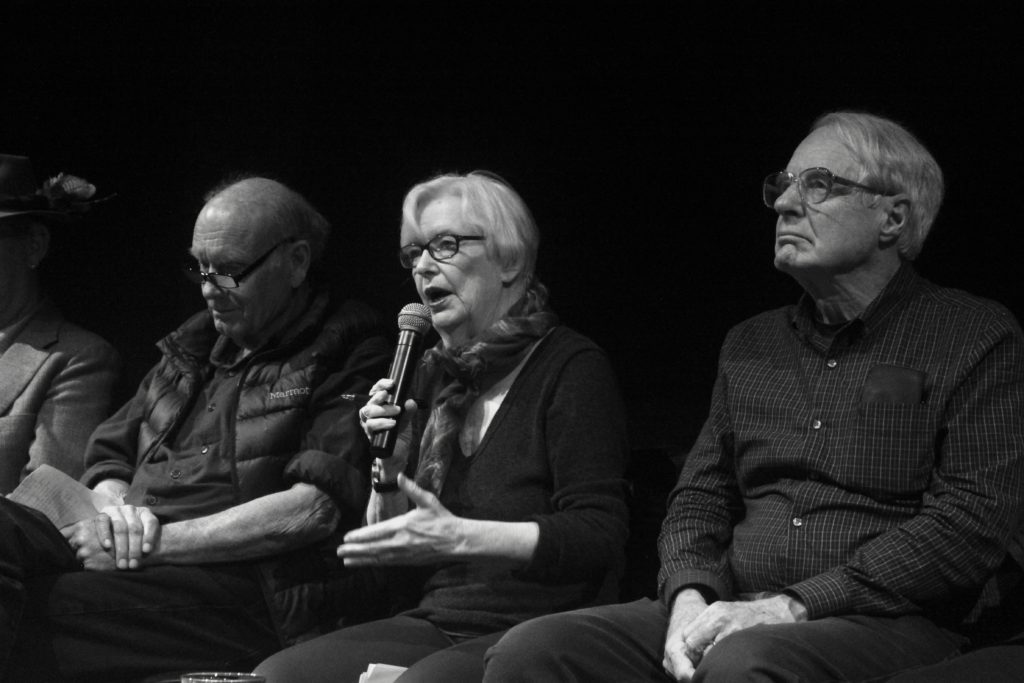
David Harris, Susan Griffin, Adam Hochschild 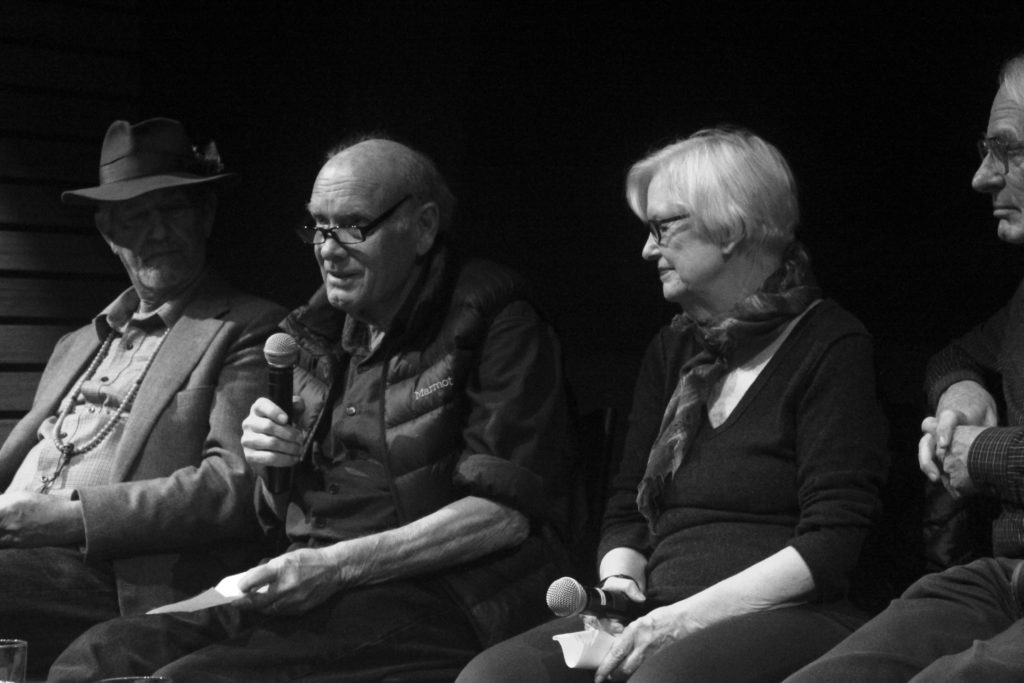
Peter Coyote, David Harris, Susan Griffin, Adam Hochschild 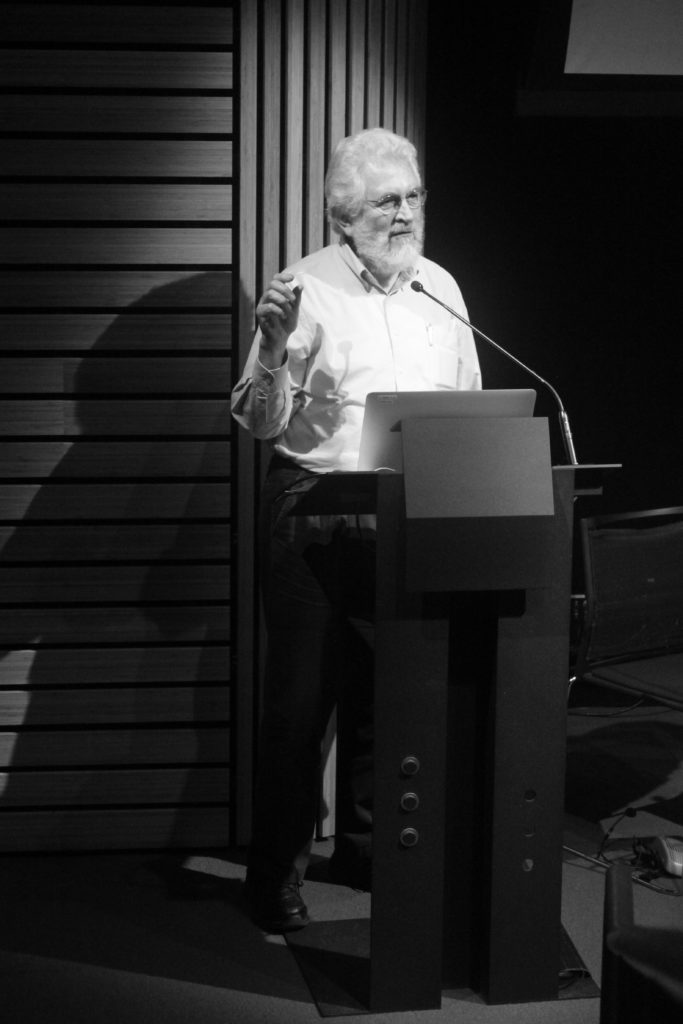
John Knox 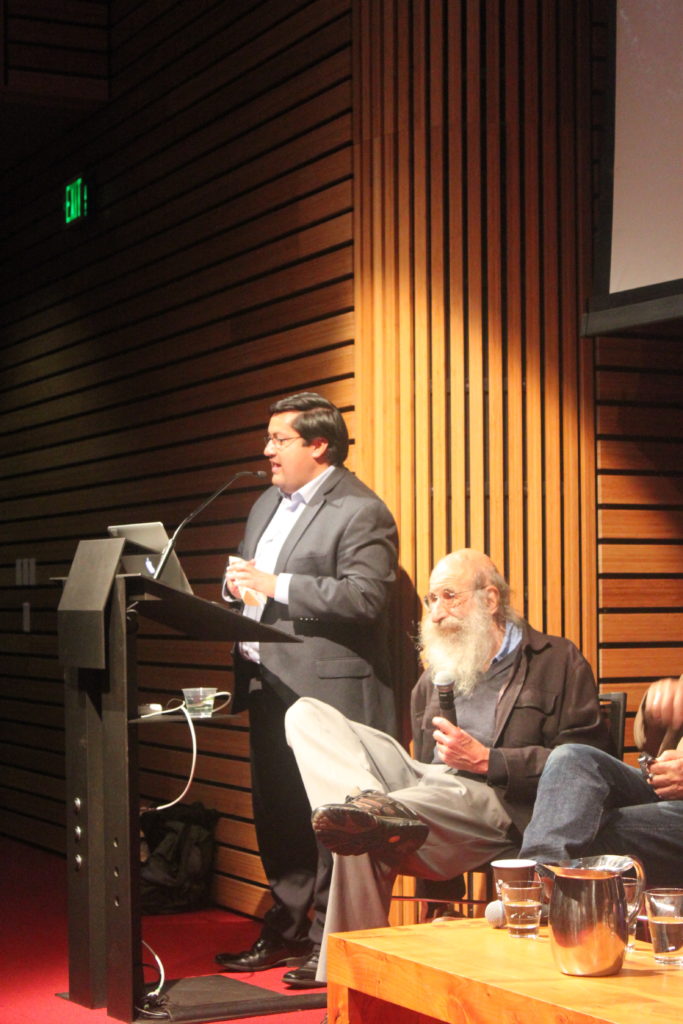
Mayor Jesse Arreguin, Malcolm Margolin 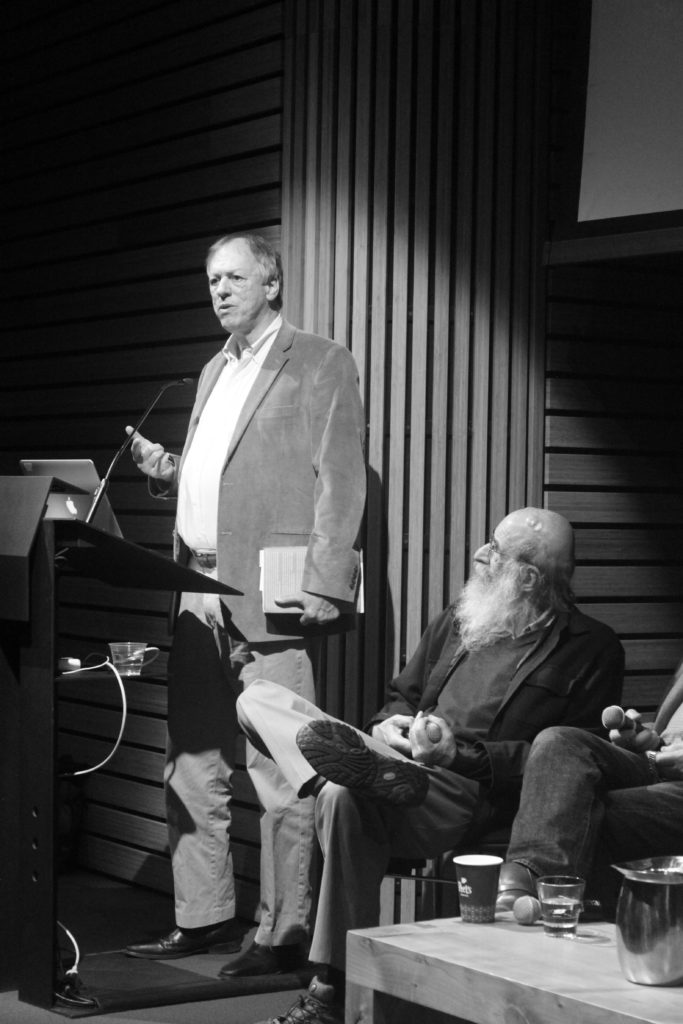
Frye Gaillard, Malcolm Margolin 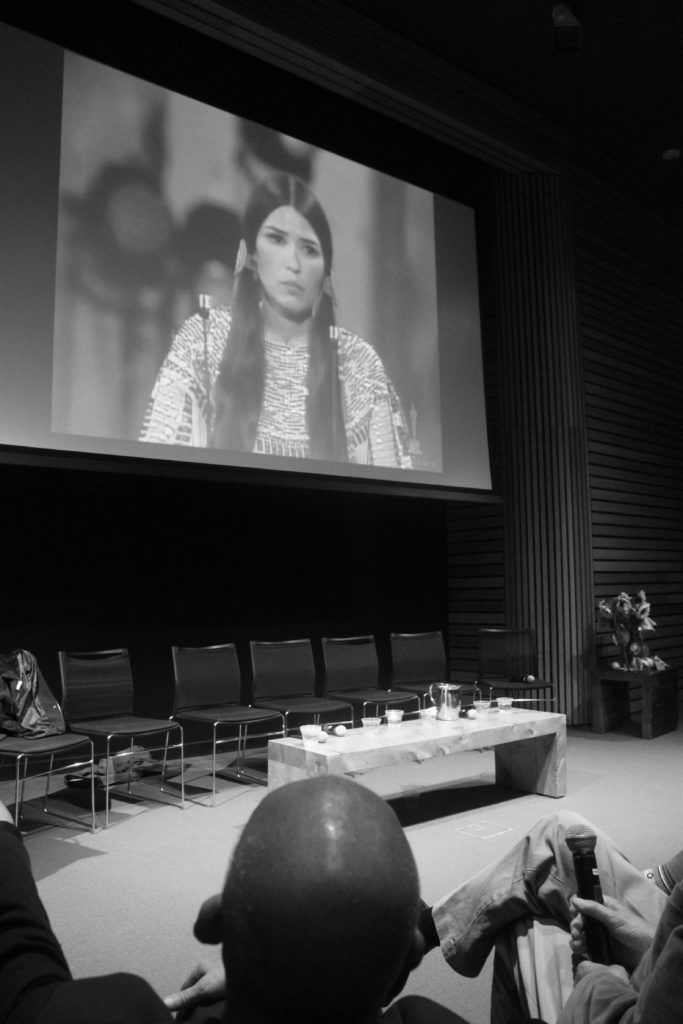
Sacheen Littlefeather on video 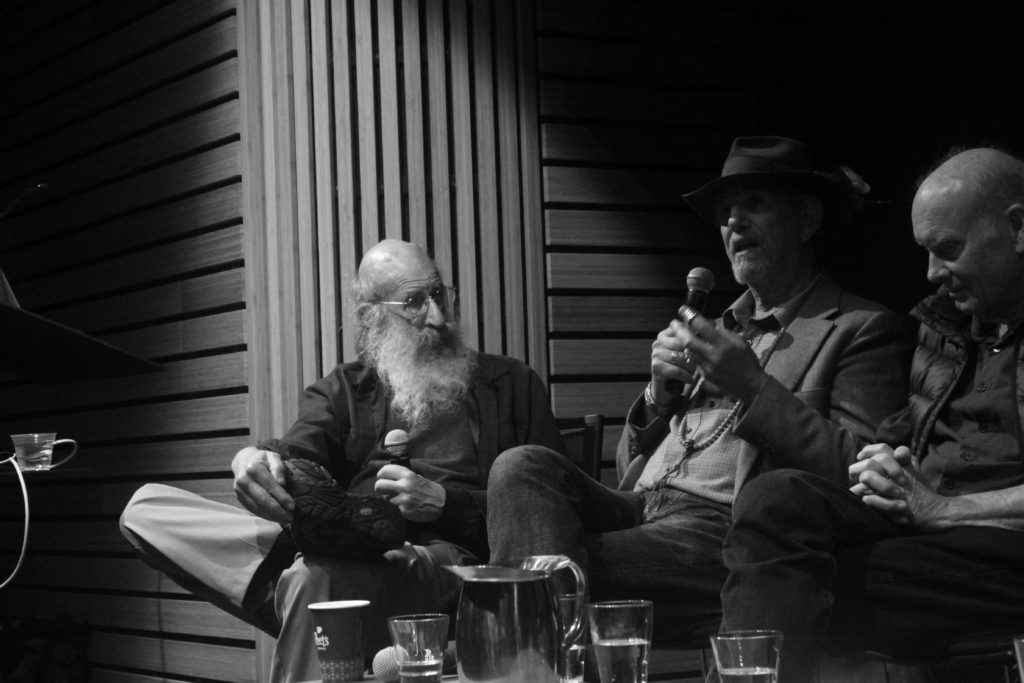
Malcolm Margolin, Peter Coyote 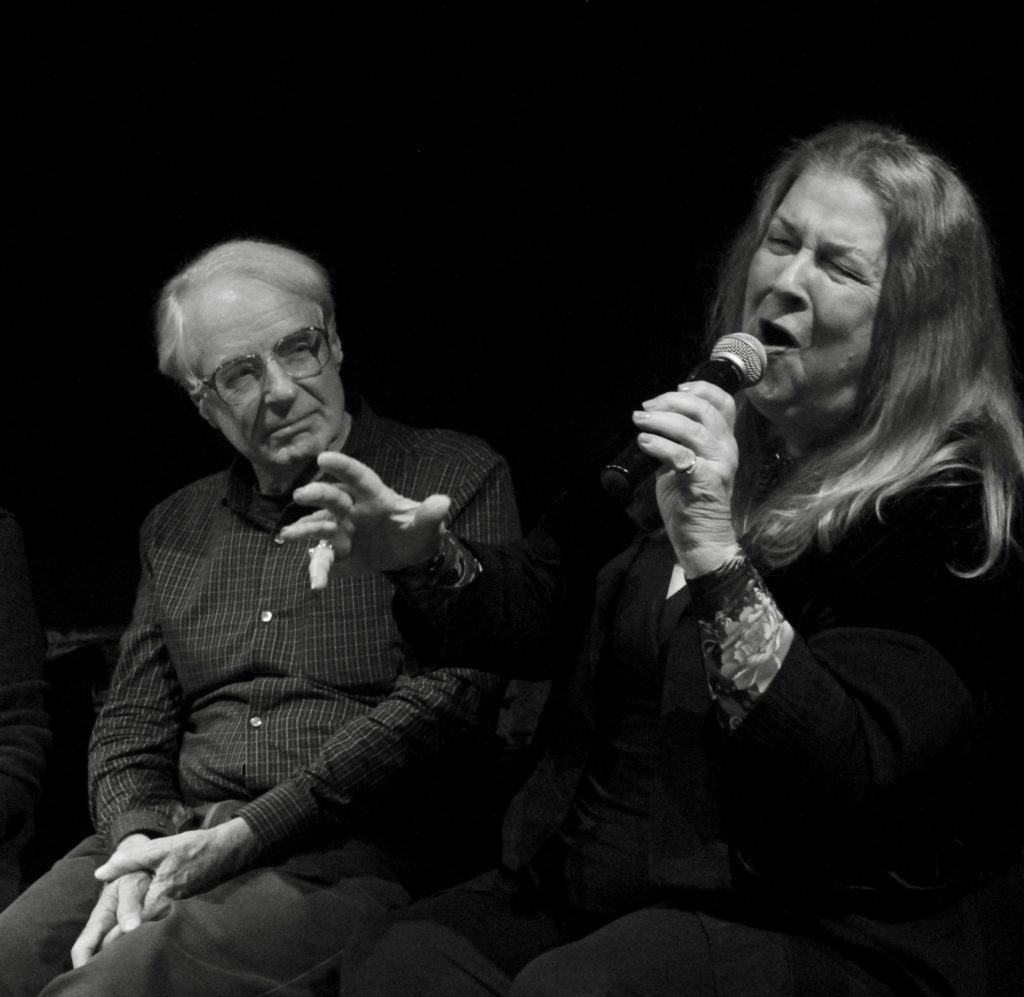
Adam Hochschild, Anna de Leon 
Second Panel 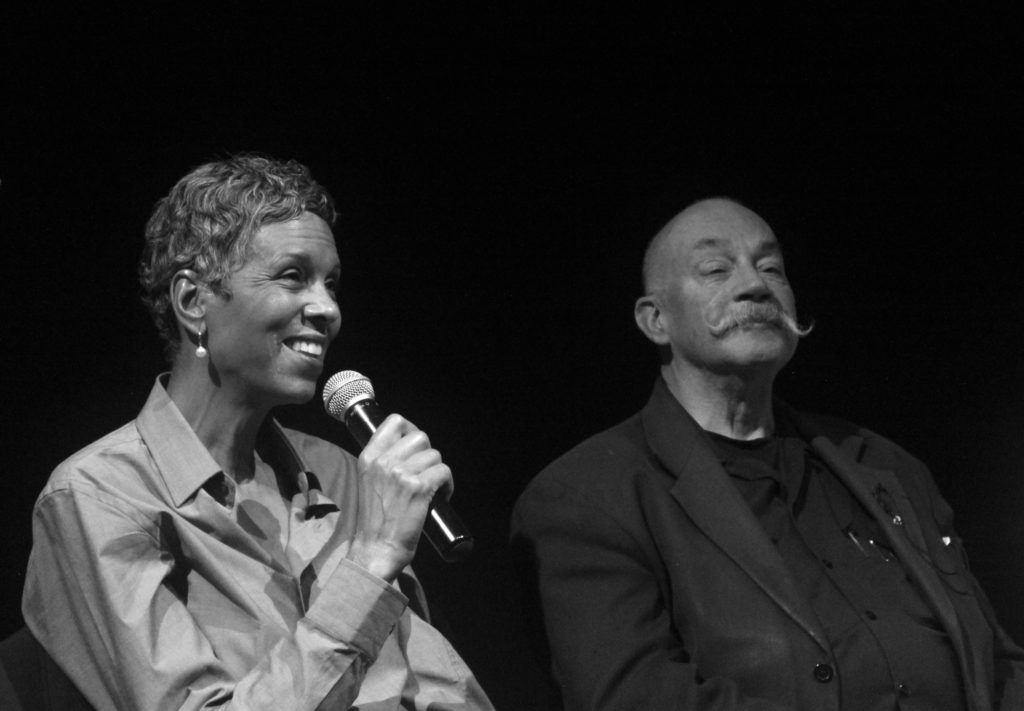
Fredrika Newton, David Lance Goines 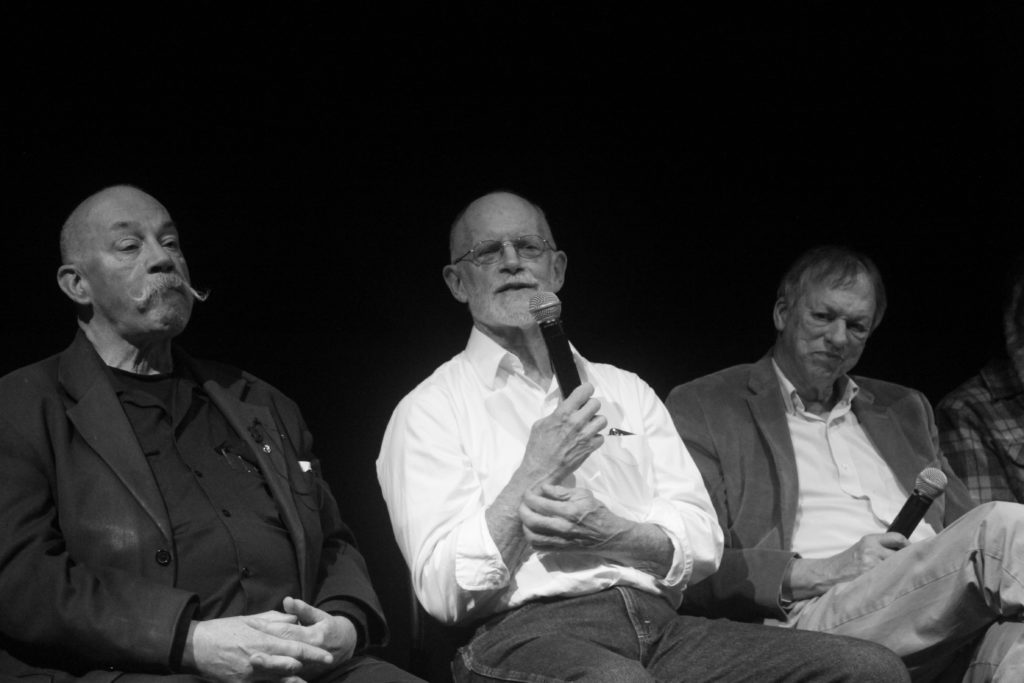
David Lance Goines, Ken Brower, Frye Gaillard 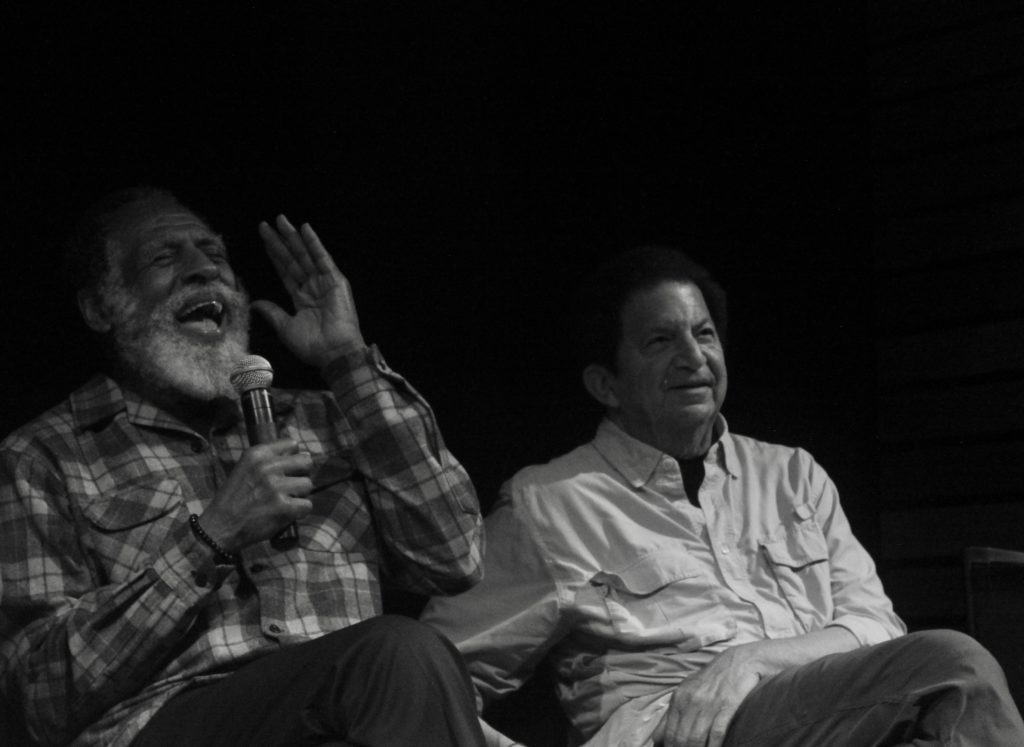
Arnold Perkins, Wes “Scoop” Nisker 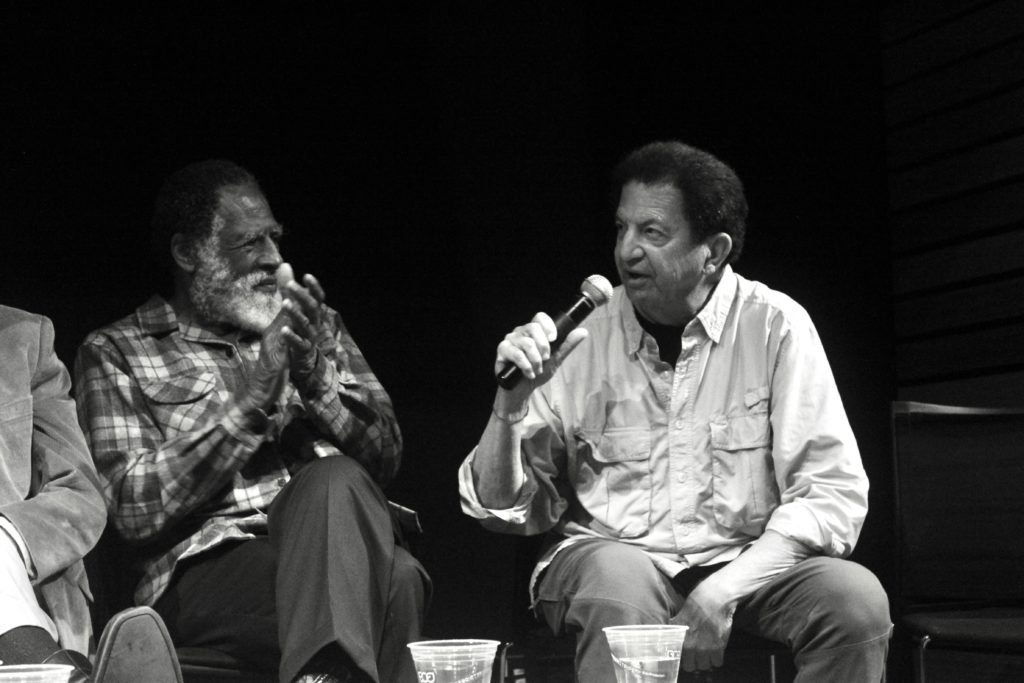
Arnold Perkins, Wes “Scoop” Nisker 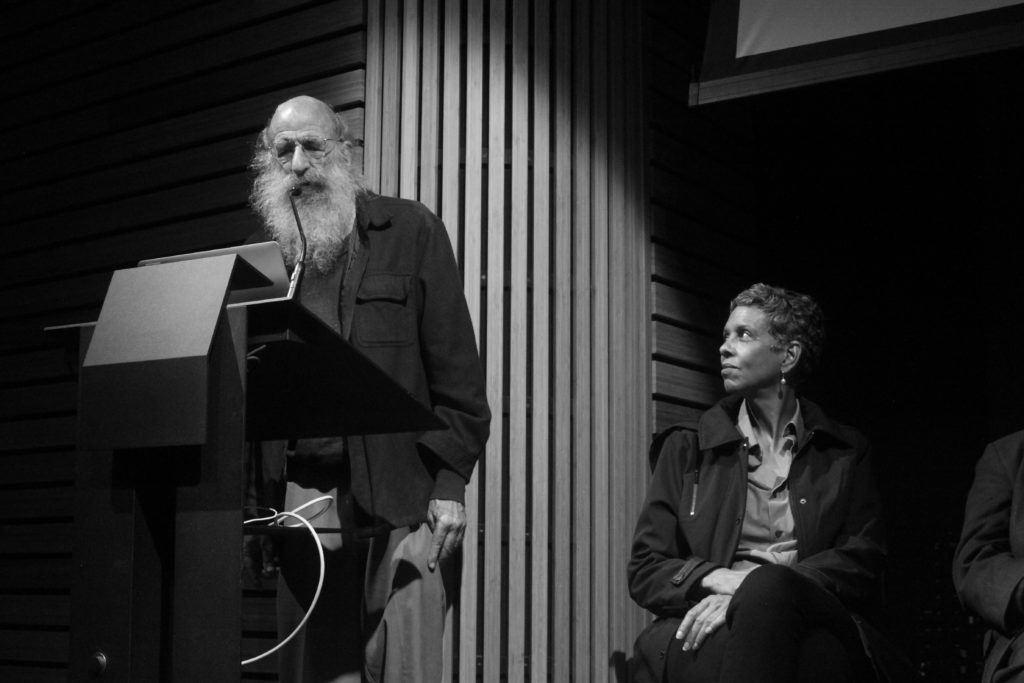
Malcolm Margolin, Fredrika Newton 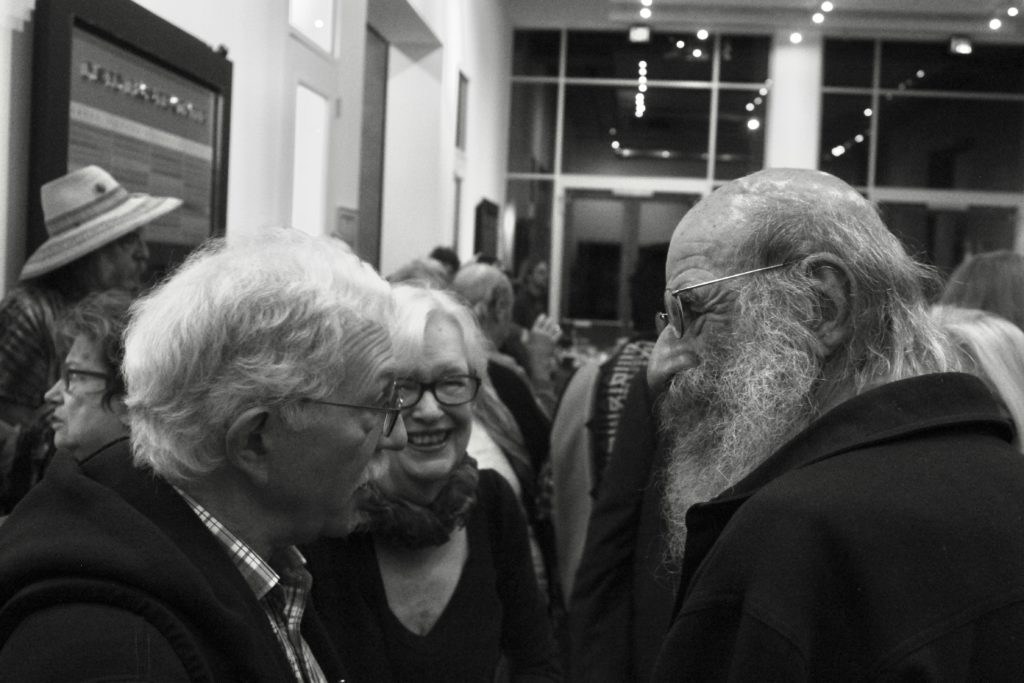
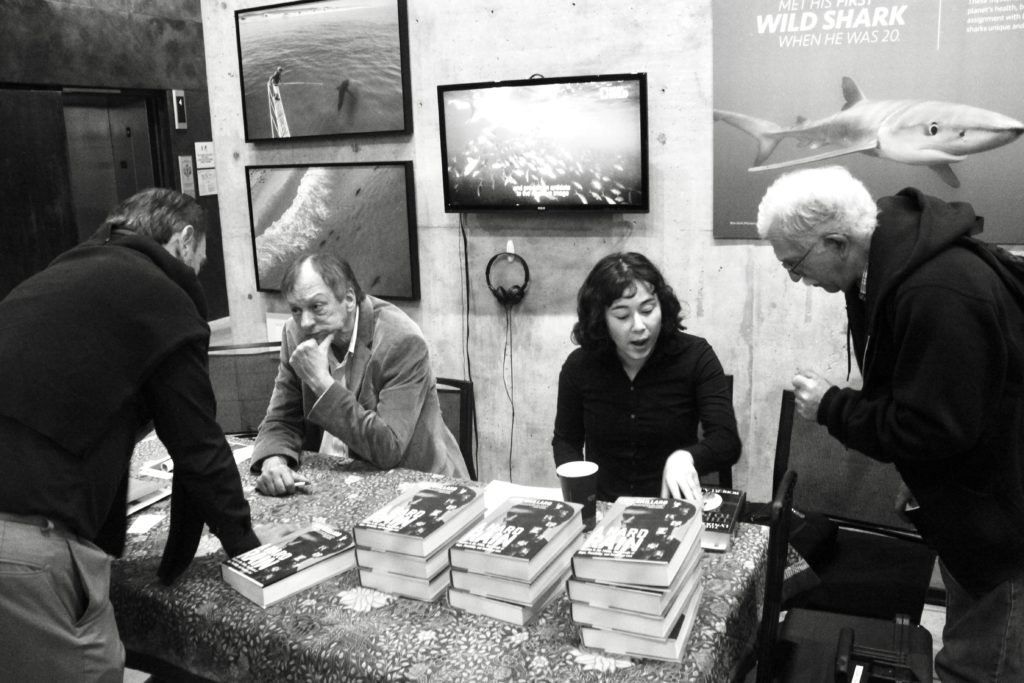
Photos by Jamie Does. http://www.jamiedoesvisuals.com/
